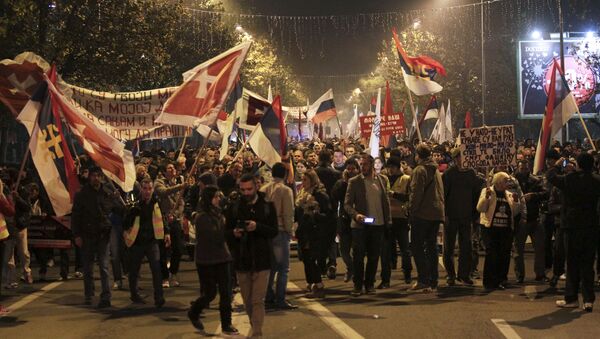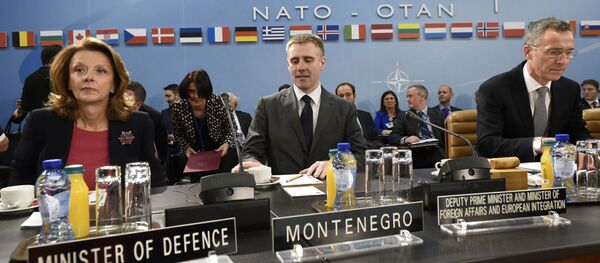Mandic and Radunovic, however, argue that the aggressive ‘protesters’ who incited clashes with law enforcement units were in fact provocateurs, and that the trial is in fact politically motivated and is being used by the government to strike a blow against the opposition.
Historian and political analyst Cedomir Antic, who, along with a number of prominent intellectuals, joined a special committee that was formed in Belgrade to help defend the accused politicians, told Sputnik that his group seeks to shed light on what kind of injustice is being perpetrated in Montenegro.
"Our primary goal is to raise awareness about the fact that a European country which is also a candidate for EU membership allows the persecution of political opponents and the use of courts to pursue political agendas," Antic said.
He also added that Montenegro's authorities have enacted a "chauvinistic policy" against the Serbs living in the country, who comprise 29 percent of the total population, according to the latest census.
Meanwhile, over 50 percent of Montenegro residents speak Serbian, despite the fact that the state language is Montenegrin. If the government recognized the cultural and political rights of all of the country’s ethnic groups, then Montenegro would become a democratic country, though most likely without Milo Djukanovic at its helm, Antic remarked.
At this time however, it appears that there’s no way that Djukanovic's government can lose the upcoming October elections.
"If he loses, then he would simply falsify the results. But as soon as Montenegro joins NATO, the West will no longer have any use for Djukanovic, because every powerful state has two goals: to implement its own egotistical agenda and to promote its values. And according to one of the Western values, there should be no people like Djukanovic in Western countries. Be as it may, any Montenegro government – except for the Djukanovic administration – would have to recognize the rights of [people from all ethnic groups] inhabiting the country, finally turning Montenegro into a true multinational state. And there’s no risk that the country would become ‘a part of Serbia’ or some sort of new Yugoslavia, though it will be close to Serbia just like Cyprus is close to Greece and Azerbaijan to Turkey," he surmised.
Djukanovic and two associates from the Communist League effectively seized power in Montenegro in 1989, and has been either president or Prime Minister of Montenegro for most of the time since then, having retired briefly in 2006-2008 and again in 2010-2012.



